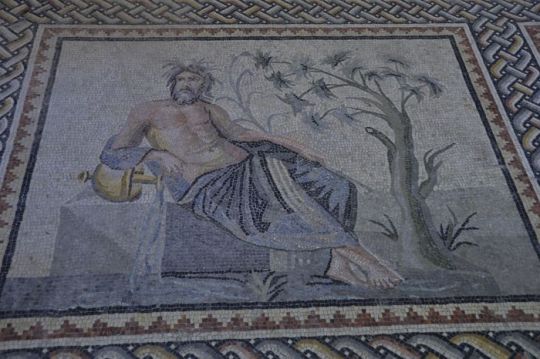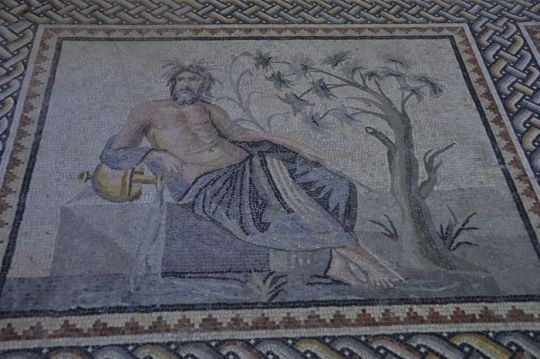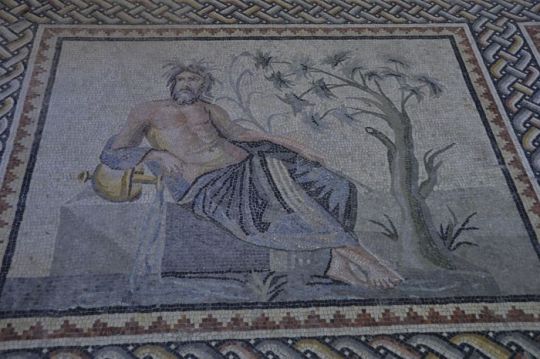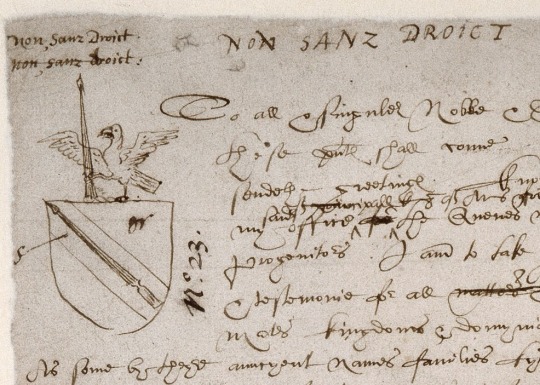#dethickness
Text


FOLLOW MY IG & X (TWITTER) @ DETHICKNESSLEO
#thickness#lionking#dethickness#tatted#beardedbrothers#thickums#beardgang#dethicknessleo#feelingmyself#tattoos
40 notes
·
View notes
Text
“James’s concern for his mother’s memory was expressed as soon as was decently possible after his coronation. On 14 August 1603 he sent his herald William Dethick to Peterborough cathedral with ‘a rich pall of velvet embroidered with the arms of the mighty princess Mary, Queen of Scots’ and a letter instructing the bishop of Peterborough to have it placed on her grave. The bishop acquiesced, and both he and the dean preached sermons for the occasion. The act may be read as compensation for his absence at her first funeral and as one of many attempts to put her troubled history to rest.”
Peter Sherlock, "The Monuments of Elizabeth Tudor and Mary Stuart: King James and the Manipulation of Memory," 269.
#james i#james vi#mary stuart#mqos#history#house of stuart#stuart dynasty#stuart era#stuart period#royal history#english history#scottish history#early modern history#*quotes
1 note
·
View note
Photo

Shaksperes
The way in which it all works into ordinary books is this. The compilers of dictionaries, catalogues, compendiums, vade-mecums, and the like, the writers of newspaper paragraphs and literary announcements, are not only a most industrious, but a most accurate and most alert, race of men. They are ever on the watch for the latest discovery, and the last special work on every conceivable topic.
It is not to be expected that they can go very deeply into each matter themselves; but the latest spelling, the last new commentary, or the newest literary ‘ find,’ is eminently the field of their peculiar work. To them, the man who has abolished the ‘ Battle of Hastings ’ as a popular error must know more about history than any man living; and so, the man who writes Shakspere has apparently the latest lights on the Elizabethan drama. Thus it comes that our ordinary style is rapidly infiltrated with Karls and JE If reds, and Senlacs, Qurans, and Shaksperes; till it becomes at last almost a kind of pedantry to object.
How foolish is the attempt to re-name Shakespeare him-self by the aid of manuscripts ! As every one knows, the name of Shakespeare may be found in contemporary documents in almost every possible form of the letters. Some of these are — Shakespeare, Schakespere, Schakespeire, Shakespeyre, Chacsper, Shakspere, Shakespere, Shakespeere, Shackspear, Shakeseper, Shackespeare, Saxspere, Shack- speere, Shaxeper, Shaxpere, Shaxper, Shaxpeer, Shaxspere, Shakspeare, Shakuspeare, Shakesper, Shaksper, Skackspere, Shakspyr, Shakspear, Shakspeyr, Shackspeare, Shaxkspere, Shackspeyr, Shaxpeare, Shakesphere, Sackesper, Shackspare turkey sightseeing, Shakspeere, Shaxpeare, Shakxsper; Shaxpere, Shakspeyr, Shagspur, and Shaxberd. Here are forty of the contemporary modes of spelling his name. Now are the facsimi- lists prepared to call the great poet of the world by whichever of these, as in a parish election, commands the majority of the written documents? So that, if we have at last to call our immortal bard, Chacsper, or Shaxper, or Shagspur, we must accept it; and in the mean time leave his name as variable as ever his contemporaries did?
Various ways
Shakespeare no doubt, like most persons in that age, wrote his name in various ways. The extant autographs differ; and the signature which is thought to be Shakspere, has been simply misread, and plainly shows another letter. The vast preponderance of evidence establishes that in the printed literature of his time his name was written — Shakespeare. In his first poems, Lucrece and Venus and Adonis, he placed Shakespeare on the title-page So it stands on the folios of 1623 and 1632.
So also it was spelled by his friends in their published works; Ben Jonson, by Bancroft, Bamefield, Willobie, Freeman, Davies, Meres, and Weever. It is certain that his name was pronounced Shake-spear (i.e., as *Shake ‘ and Spear’ were then pronounced) by his literary friends in London. This is shown by the punning lines of Ben Jonson, by those of Bancroft and others; by Greene’s allusion to him as the only Shake-scene; and, lastly, by the canting heraldry of the arms granted to his father in 1599: — ‘In a field of gould upon a bend sables a speare of the first: with crest a ffalcon supporting a speare.’
It is very probable that this grant of arms, about which Dethick, the Garter-King, was blamed and had to defend himself, practically settled the pronunciation as well as the spelling. It is probable that hitherto the family name had not been so spelt or so pronounced in Warwickshire. It is possible that Shake-speare was almost a nick-name, or a familiar stage-name; but, like Erasmus, Melancthon, or Voltaire, he who bore it carried it so into literature. For some centuries downwards, the immense concurrence of writers, English and foreign, has so accepted the name. A great majority of the commentators have adopted the same form: Dyce, Collier, Halliwell-Phillipps, Staunton, W. G. Clark. No one of the principal editors of the poet writes his name ‘Shakspere But so Mr. Furnivall decrees it shall be.
One would have thought so great a preponderance of literary practice need not be disturbed by one or two signatures in manuscript, even if they were perfectly distinct and quite uniform. Yet, such is the march of palaeographic purism, that our great poet is in imminent danger of being translated into Shakspere, and ultimately Shaxper.
0 notes
Photo

Shaksperes
The way in which it all works into ordinary books is this. The compilers of dictionaries, catalogues, compendiums, vade-mecums, and the like, the writers of newspaper paragraphs and literary announcements, are not only a most industrious, but a most accurate and most alert, race of men. They are ever on the watch for the latest discovery, and the last special work on every conceivable topic.
It is not to be expected that they can go very deeply into each matter themselves; but the latest spelling, the last new commentary, or the newest literary ‘ find,’ is eminently the field of their peculiar work. To them, the man who has abolished the ‘ Battle of Hastings ’ as a popular error must know more about history than any man living; and so, the man who writes Shakspere has apparently the latest lights on the Elizabethan drama. Thus it comes that our ordinary style is rapidly infiltrated with Karls and JE If reds, and Senlacs, Qurans, and Shaksperes; till it becomes at last almost a kind of pedantry to object.
How foolish is the attempt to re-name Shakespeare him-self by the aid of manuscripts ! As every one knows, the name of Shakespeare may be found in contemporary documents in almost every possible form of the letters. Some of these are — Shakespeare, Schakespere, Schakespeire, Shakespeyre, Chacsper, Shakspere, Shakespere, Shakespeere, Shackspear, Shakeseper, Shackespeare, Saxspere, Shack- speere, Shaxeper, Shaxpere, Shaxper, Shaxpeer, Shaxspere, Shakspeare, Shakuspeare, Shakesper, Shaksper, Skackspere, Shakspyr, Shakspear, Shakspeyr, Shackspeare, Shaxkspere, Shackspeyr, Shaxpeare, Shakesphere, Sackesper, Shackspare turkey sightseeing, Shakspeere, Shaxpeare, Shakxsper; Shaxpere, Shakspeyr, Shagspur, and Shaxberd. Here are forty of the contemporary modes of spelling his name. Now are the facsimi- lists prepared to call the great poet of the world by whichever of these, as in a parish election, commands the majority of the written documents? So that, if we have at last to call our immortal bard, Chacsper, or Shaxper, or Shagspur, we must accept it; and in the mean time leave his name as variable as ever his contemporaries did?
Various ways
Shakespeare no doubt, like most persons in that age, wrote his name in various ways. The extant autographs differ; and the signature which is thought to be Shakspere, has been simply misread, and plainly shows another letter. The vast preponderance of evidence establishes that in the printed literature of his time his name was written — Shakespeare. In his first poems, Lucrece and Venus and Adonis, he placed Shakespeare on the title-page So it stands on the folios of 1623 and 1632.
So also it was spelled by his friends in their published works; Ben Jonson, by Bancroft, Bamefield, Willobie, Freeman, Davies, Meres, and Weever. It is certain that his name was pronounced Shake-spear (i.e., as *Shake ‘ and Spear’ were then pronounced) by his literary friends in London. This is shown by the punning lines of Ben Jonson, by those of Bancroft and others; by Greene’s allusion to him as the only Shake-scene; and, lastly, by the canting heraldry of the arms granted to his father in 1599: — ‘In a field of gould upon a bend sables a speare of the first: with crest a ffalcon supporting a speare.’
It is very probable that this grant of arms, about which Dethick, the Garter-King, was blamed and had to defend himself, practically settled the pronunciation as well as the spelling. It is probable that hitherto the family name had not been so spelt or so pronounced in Warwickshire. It is possible that Shake-speare was almost a nick-name, or a familiar stage-name; but, like Erasmus, Melancthon, or Voltaire, he who bore it carried it so into literature. For some centuries downwards, the immense concurrence of writers, English and foreign, has so accepted the name. A great majority of the commentators have adopted the same form: Dyce, Collier, Halliwell-Phillipps, Staunton, W. G. Clark. No one of the principal editors of the poet writes his name ‘Shakspere But so Mr. Furnivall decrees it shall be.
One would have thought so great a preponderance of literary practice need not be disturbed by one or two signatures in manuscript, even if they were perfectly distinct and quite uniform. Yet, such is the march of palaeographic purism, that our great poet is in imminent danger of being translated into Shakspere, and ultimately Shaxper.
0 notes
Photo

Shaksperes
The way in which it all works into ordinary books is this. The compilers of dictionaries, catalogues, compendiums, vade-mecums, and the like, the writers of newspaper paragraphs and literary announcements, are not only a most industrious, but a most accurate and most alert, race of men. They are ever on the watch for the latest discovery, and the last special work on every conceivable topic.
It is not to be expected that they can go very deeply into each matter themselves; but the latest spelling, the last new commentary, or the newest literary ‘ find,’ is eminently the field of their peculiar work. To them, the man who has abolished the ‘ Battle of Hastings ’ as a popular error must know more about history than any man living; and so, the man who writes Shakspere has apparently the latest lights on the Elizabethan drama. Thus it comes that our ordinary style is rapidly infiltrated with Karls and JE If reds, and Senlacs, Qurans, and Shaksperes; till it becomes at last almost a kind of pedantry to object.
How foolish is the attempt to re-name Shakespeare him-self by the aid of manuscripts ! As every one knows, the name of Shakespeare may be found in contemporary documents in almost every possible form of the letters. Some of these are — Shakespeare, Schakespere, Schakespeire, Shakespeyre, Chacsper, Shakspere, Shakespere, Shakespeere, Shackspear, Shakeseper, Shackespeare, Saxspere, Shack- speere, Shaxeper, Shaxpere, Shaxper, Shaxpeer, Shaxspere, Shakspeare, Shakuspeare, Shakesper, Shaksper, Skackspere, Shakspyr, Shakspear, Shakspeyr, Shackspeare, Shaxkspere, Shackspeyr, Shaxpeare, Shakesphere, Sackesper, Shackspare turkey sightseeing, Shakspeere, Shaxpeare, Shakxsper; Shaxpere, Shakspeyr, Shagspur, and Shaxberd. Here are forty of the contemporary modes of spelling his name. Now are the facsimi- lists prepared to call the great poet of the world by whichever of these, as in a parish election, commands the majority of the written documents? So that, if we have at last to call our immortal bard, Chacsper, or Shaxper, or Shagspur, we must accept it; and in the mean time leave his name as variable as ever his contemporaries did?
Various ways
Shakespeare no doubt, like most persons in that age, wrote his name in various ways. The extant autographs differ; and the signature which is thought to be Shakspere, has been simply misread, and plainly shows another letter. The vast preponderance of evidence establishes that in the printed literature of his time his name was written — Shakespeare. In his first poems, Lucrece and Venus and Adonis, he placed Shakespeare on the title-page So it stands on the folios of 1623 and 1632.
So also it was spelled by his friends in their published works; Ben Jonson, by Bancroft, Bamefield, Willobie, Freeman, Davies, Meres, and Weever. It is certain that his name was pronounced Shake-spear (i.e., as *Shake ‘ and Spear’ were then pronounced) by his literary friends in London. This is shown by the punning lines of Ben Jonson, by those of Bancroft and others; by Greene’s allusion to him as the only Shake-scene; and, lastly, by the canting heraldry of the arms granted to his father in 1599: — ‘In a field of gould upon a bend sables a speare of the first: with crest a ffalcon supporting a speare.’
It is very probable that this grant of arms, about which Dethick, the Garter-King, was blamed and had to defend himself, practically settled the pronunciation as well as the spelling. It is probable that hitherto the family name had not been so spelt or so pronounced in Warwickshire. It is possible that Shake-speare was almost a nick-name, or a familiar stage-name; but, like Erasmus, Melancthon, or Voltaire, he who bore it carried it so into literature. For some centuries downwards, the immense concurrence of writers, English and foreign, has so accepted the name. A great majority of the commentators have adopted the same form: Dyce, Collier, Halliwell-Phillipps, Staunton, W. G. Clark. No one of the principal editors of the poet writes his name ‘Shakspere But so Mr. Furnivall decrees it shall be.
One would have thought so great a preponderance of literary practice need not be disturbed by one or two signatures in manuscript, even if they were perfectly distinct and quite uniform. Yet, such is the march of palaeographic purism, that our great poet is in imminent danger of being translated into Shakspere, and ultimately Shaxper.
0 notes
Photo

Shaksperes
The way in which it all works into ordinary books is this. The compilers of dictionaries, catalogues, compendiums, vade-mecums, and the like, the writers of newspaper paragraphs and literary announcements, are not only a most industrious, but a most accurate and most alert, race of men. They are ever on the watch for the latest discovery, and the last special work on every conceivable topic.
It is not to be expected that they can go very deeply into each matter themselves; but the latest spelling, the last new commentary, or the newest literary ‘ find,’ is eminently the field of their peculiar work. To them, the man who has abolished the ‘ Battle of Hastings ’ as a popular error must know more about history than any man living; and so, the man who writes Shakspere has apparently the latest lights on the Elizabethan drama. Thus it comes that our ordinary style is rapidly infiltrated with Karls and JE If reds, and Senlacs, Qurans, and Shaksperes; till it becomes at last almost a kind of pedantry to object.
How foolish is the attempt to re-name Shakespeare him-self by the aid of manuscripts ! As every one knows, the name of Shakespeare may be found in contemporary documents in almost every possible form of the letters. Some of these are — Shakespeare, Schakespere, Schakespeire, Shakespeyre, Chacsper, Shakspere, Shakespere, Shakespeere, Shackspear, Shakeseper, Shackespeare, Saxspere, Shack- speere, Shaxeper, Shaxpere, Shaxper, Shaxpeer, Shaxspere, Shakspeare, Shakuspeare, Shakesper, Shaksper, Skackspere, Shakspyr, Shakspear, Shakspeyr, Shackspeare, Shaxkspere, Shackspeyr, Shaxpeare, Shakesphere, Sackesper, Shackspare turkey sightseeing, Shakspeere, Shaxpeare, Shakxsper; Shaxpere, Shakspeyr, Shagspur, and Shaxberd. Here are forty of the contemporary modes of spelling his name. Now are the facsimi- lists prepared to call the great poet of the world by whichever of these, as in a parish election, commands the majority of the written documents? So that, if we have at last to call our immortal bard, Chacsper, or Shaxper, or Shagspur, we must accept it; and in the mean time leave his name as variable as ever his contemporaries did?
Various ways
Shakespeare no doubt, like most persons in that age, wrote his name in various ways. The extant autographs differ; and the signature which is thought to be Shakspere, has been simply misread, and plainly shows another letter. The vast preponderance of evidence establishes that in the printed literature of his time his name was written — Shakespeare. In his first poems, Lucrece and Venus and Adonis, he placed Shakespeare on the title-page So it stands on the folios of 1623 and 1632.
So also it was spelled by his friends in their published works; Ben Jonson, by Bancroft, Bamefield, Willobie, Freeman, Davies, Meres, and Weever. It is certain that his name was pronounced Shake-spear (i.e., as *Shake ‘ and Spear’ were then pronounced) by his literary friends in London. This is shown by the punning lines of Ben Jonson, by those of Bancroft and others; by Greene’s allusion to him as the only Shake-scene; and, lastly, by the canting heraldry of the arms granted to his father in 1599: — ‘In a field of gould upon a bend sables a speare of the first: with crest a ffalcon supporting a speare.’
It is very probable that this grant of arms, about which Dethick, the Garter-King, was blamed and had to defend himself, practically settled the pronunciation as well as the spelling. It is probable that hitherto the family name had not been so spelt or so pronounced in Warwickshire. It is possible that Shake-speare was almost a nick-name, or a familiar stage-name; but, like Erasmus, Melancthon, or Voltaire, he who bore it carried it so into literature. For some centuries downwards, the immense concurrence of writers, English and foreign, has so accepted the name. A great majority of the commentators have adopted the same form: Dyce, Collier, Halliwell-Phillipps, Staunton, W. G. Clark. No one of the principal editors of the poet writes his name ‘Shakspere But so Mr. Furnivall decrees it shall be.
One would have thought so great a preponderance of literary practice need not be disturbed by one or two signatures in manuscript, even if they were perfectly distinct and quite uniform. Yet, such is the march of palaeographic purism, that our great poet is in imminent danger of being translated into Shakspere, and ultimately Shaxper.
0 notes
Photo

Shaksperes
The way in which it all works into ordinary books is this. The compilers of dictionaries, catalogues, compendiums, vade-mecums, and the like, the writers of newspaper paragraphs and literary announcements, are not only a most industrious, but a most accurate and most alert, race of men. They are ever on the watch for the latest discovery, and the last special work on every conceivable topic.
It is not to be expected that they can go very deeply into each matter themselves; but the latest spelling, the last new commentary, or the newest literary ‘ find,’ is eminently the field of their peculiar work. To them, the man who has abolished the ‘ Battle of Hastings ’ as a popular error must know more about history than any man living; and so, the man who writes Shakspere has apparently the latest lights on the Elizabethan drama. Thus it comes that our ordinary style is rapidly infiltrated with Karls and JE If reds, and Senlacs, Qurans, and Shaksperes; till it becomes at last almost a kind of pedantry to object.
How foolish is the attempt to re-name Shakespeare him-self by the aid of manuscripts ! As every one knows, the name of Shakespeare may be found in contemporary documents in almost every possible form of the letters. Some of these are — Shakespeare, Schakespere, Schakespeire, Shakespeyre, Chacsper, Shakspere, Shakespere, Shakespeere, Shackspear, Shakeseper, Shackespeare, Saxspere, Shack- speere, Shaxeper, Shaxpere, Shaxper, Shaxpeer, Shaxspere, Shakspeare, Shakuspeare, Shakesper, Shaksper, Skackspere, Shakspyr, Shakspear, Shakspeyr, Shackspeare, Shaxkspere, Shackspeyr, Shaxpeare, Shakesphere, Sackesper, Shackspare turkey sightseeing, Shakspeere, Shaxpeare, Shakxsper; Shaxpere, Shakspeyr, Shagspur, and Shaxberd. Here are forty of the contemporary modes of spelling his name. Now are the facsimi- lists prepared to call the great poet of the world by whichever of these, as in a parish election, commands the majority of the written documents? So that, if we have at last to call our immortal bard, Chacsper, or Shaxper, or Shagspur, we must accept it; and in the mean time leave his name as variable as ever his contemporaries did?
Various ways
Shakespeare no doubt, like most persons in that age, wrote his name in various ways. The extant autographs differ; and the signature which is thought to be Shakspere, has been simply misread, and plainly shows another letter. The vast preponderance of evidence establishes that in the printed literature of his time his name was written — Shakespeare. In his first poems, Lucrece and Venus and Adonis, he placed Shakespeare on the title-page So it stands on the folios of 1623 and 1632.
So also it was spelled by his friends in their published works; Ben Jonson, by Bancroft, Bamefield, Willobie, Freeman, Davies, Meres, and Weever. It is certain that his name was pronounced Shake-spear (i.e., as *Shake ‘ and Spear’ were then pronounced) by his literary friends in London. This is shown by the punning lines of Ben Jonson, by those of Bancroft and others; by Greene’s allusion to him as the only Shake-scene; and, lastly, by the canting heraldry of the arms granted to his father in 1599: — ‘In a field of gould upon a bend sables a speare of the first: with crest a ffalcon supporting a speare.’
It is very probable that this grant of arms, about which Dethick, the Garter-King, was blamed and had to defend himself, practically settled the pronunciation as well as the spelling. It is probable that hitherto the family name had not been so spelt or so pronounced in Warwickshire. It is possible that Shake-speare was almost a nick-name, or a familiar stage-name; but, like Erasmus, Melancthon, or Voltaire, he who bore it carried it so into literature. For some centuries downwards, the immense concurrence of writers, English and foreign, has so accepted the name. A great majority of the commentators have adopted the same form: Dyce, Collier, Halliwell-Phillipps, Staunton, W. G. Clark. No one of the principal editors of the poet writes his name ‘Shakspere But so Mr. Furnivall decrees it shall be.
One would have thought so great a preponderance of literary practice need not be disturbed by one or two signatures in manuscript, even if they were perfectly distinct and quite uniform. Yet, such is the march of palaeographic purism, that our great poet is in imminent danger of being translated into Shakspere, and ultimately Shaxper.
0 notes
Photo

Shaksperes
The way in which it all works into ordinary books is this. The compilers of dictionaries, catalogues, compendiums, vade-mecums, and the like, the writers of newspaper paragraphs and literary announcements, are not only a most industrious, but a most accurate and most alert, race of men. They are ever on the watch for the latest discovery, and the last special work on every conceivable topic.
It is not to be expected that they can go very deeply into each matter themselves; but the latest spelling, the last new commentary, or the newest literary ‘ find,’ is eminently the field of their peculiar work. To them, the man who has abolished the ‘ Battle of Hastings ’ as a popular error must know more about history than any man living; and so, the man who writes Shakspere has apparently the latest lights on the Elizabethan drama. Thus it comes that our ordinary style is rapidly infiltrated with Karls and JE If reds, and Senlacs, Qurans, and Shaksperes; till it becomes at last almost a kind of pedantry to object.
How foolish is the attempt to re-name Shakespeare him-self by the aid of manuscripts ! As every one knows, the name of Shakespeare may be found in contemporary documents in almost every possible form of the letters. Some of these are — Shakespeare, Schakespere, Schakespeire, Shakespeyre, Chacsper, Shakspere, Shakespere, Shakespeere, Shackspear, Shakeseper, Shackespeare, Saxspere, Shack- speere, Shaxeper, Shaxpere, Shaxper, Shaxpeer, Shaxspere, Shakspeare, Shakuspeare, Shakesper, Shaksper, Skackspere, Shakspyr, Shakspear, Shakspeyr, Shackspeare, Shaxkspere, Shackspeyr, Shaxpeare, Shakesphere, Sackesper, Shackspare turkey sightseeing, Shakspeere, Shaxpeare, Shakxsper; Shaxpere, Shakspeyr, Shagspur, and Shaxberd. Here are forty of the contemporary modes of spelling his name. Now are the facsimi- lists prepared to call the great poet of the world by whichever of these, as in a parish election, commands the majority of the written documents? So that, if we have at last to call our immortal bard, Chacsper, or Shaxper, or Shagspur, we must accept it; and in the mean time leave his name as variable as ever his contemporaries did?
Various ways
Shakespeare no doubt, like most persons in that age, wrote his name in various ways. The extant autographs differ; and the signature which is thought to be Shakspere, has been simply misread, and plainly shows another letter. The vast preponderance of evidence establishes that in the printed literature of his time his name was written — Shakespeare. In his first poems, Lucrece and Venus and Adonis, he placed Shakespeare on the title-page So it stands on the folios of 1623 and 1632.
So also it was spelled by his friends in their published works; Ben Jonson, by Bancroft, Bamefield, Willobie, Freeman, Davies, Meres, and Weever. It is certain that his name was pronounced Shake-spear (i.e., as *Shake ‘ and Spear’ were then pronounced) by his literary friends in London. This is shown by the punning lines of Ben Jonson, by those of Bancroft and others; by Greene’s allusion to him as the only Shake-scene; and, lastly, by the canting heraldry of the arms granted to his father in 1599: — ‘In a field of gould upon a bend sables a speare of the first: with crest a ffalcon supporting a speare.’
It is very probable that this grant of arms, about which Dethick, the Garter-King, was blamed and had to defend himself, practically settled the pronunciation as well as the spelling. It is probable that hitherto the family name had not been so spelt or so pronounced in Warwickshire. It is possible that Shake-speare was almost a nick-name, or a familiar stage-name; but, like Erasmus, Melancthon, or Voltaire, he who bore it carried it so into literature. For some centuries downwards, the immense concurrence of writers, English and foreign, has so accepted the name. A great majority of the commentators have adopted the same form: Dyce, Collier, Halliwell-Phillipps, Staunton, W. G. Clark. No one of the principal editors of the poet writes his name ‘Shakspere But so Mr. Furnivall decrees it shall be.
One would have thought so great a preponderance of literary practice need not be disturbed by one or two signatures in manuscript, even if they were perfectly distinct and quite uniform. Yet, such is the march of palaeographic purism, that our great poet is in imminent danger of being translated into Shakspere, and ultimately Shaxper.
0 notes
Text


IG/X - Dethicknessleo
XXX X- Mbakukingg
Follow me
20 notes
·
View notes
Photo

Shaksperes
The way in which it all works into ordinary books is this. The compilers of dictionaries, catalogues, compendiums, vade-mecums, and the like, the writers of newspaper paragraphs and literary announcements, are not only a most industrious, but a most accurate and most alert, race of men. They are ever on the watch for the latest discovery, and the last special work on every conceivable topic.
It is not to be expected that they can go very deeply into each matter themselves; but the latest spelling, the last new commentary, or the newest literary ‘ find,’ is eminently the field of their peculiar work. To them, the man who has abolished the ‘ Battle of Hastings ’ as a popular error must know more about history than any man living; and so, the man who writes Shakspere has apparently the latest lights on the Elizabethan drama. Thus it comes that our ordinary style is rapidly infiltrated with Karls and JE If reds, and Senlacs, Qurans, and Shaksperes; till it becomes at last almost a kind of pedantry to object.
How foolish is the attempt to re-name Shakespeare him-self by the aid of manuscripts ! As every one knows, the name of Shakespeare may be found in contemporary documents in almost every possible form of the letters. Some of these are — Shakespeare, Schakespere, Schakespeire, Shakespeyre, Chacsper, Shakspere, Shakespere, Shakespeere, Shackspear, Shakeseper, Shackespeare, Saxspere, Shack- speere, Shaxeper, Shaxpere, Shaxper, Shaxpeer, Shaxspere, Shakspeare, Shakuspeare, Shakesper, Shaksper, Skackspere, Shakspyr, Shakspear, Shakspeyr, Shackspeare, Shaxkspere, Shackspeyr, Shaxpeare, Shakesphere, Sackesper, Shackspare turkey sightseeing, Shakspeere, Shaxpeare, Shakxsper; Shaxpere, Shakspeyr, Shagspur, and Shaxberd. Here are forty of the contemporary modes of spelling his name. Now are the facsimi- lists prepared to call the great poet of the world by whichever of these, as in a parish election, commands the majority of the written documents? So that, if we have at last to call our immortal bard, Chacsper, or Shaxper, or Shagspur, we must accept it; and in the mean time leave his name as variable as ever his contemporaries did?
Various ways
Shakespeare no doubt, like most persons in that age, wrote his name in various ways. The extant autographs differ; and the signature which is thought to be Shakspere, has been simply misread, and plainly shows another letter. The vast preponderance of evidence establishes that in the printed literature of his time his name was written — Shakespeare. In his first poems, Lucrece and Venus and Adonis, he placed Shakespeare on the title-page So it stands on the folios of 1623 and 1632.
So also it was spelled by his friends in their published works; Ben Jonson, by Bancroft, Bamefield, Willobie, Freeman, Davies, Meres, and Weever. It is certain that his name was pronounced Shake-spear (i.e., as *Shake ‘ and Spear’ were then pronounced) by his literary friends in London. This is shown by the punning lines of Ben Jonson, by those of Bancroft and others; by Greene’s allusion to him as the only Shake-scene; and, lastly, by the canting heraldry of the arms granted to his father in 1599: — ‘In a field of gould upon a bend sables a speare of the first: with crest a ffalcon supporting a speare.’
It is very probable that this grant of arms, about which Dethick, the Garter-King, was blamed and had to defend himself, practically settled the pronunciation as well as the spelling. It is probable that hitherto the family name had not been so spelt or so pronounced in Warwickshire. It is possible that Shake-speare was almost a nick-name, or a familiar stage-name; but, like Erasmus, Melancthon, or Voltaire, he who bore it carried it so into literature. For some centuries downwards, the immense concurrence of writers, English and foreign, has so accepted the name. A great majority of the commentators have adopted the same form: Dyce, Collier, Halliwell-Phillipps, Staunton, W. G. Clark. No one of the principal editors of the poet writes his name ‘Shakspere But so Mr. Furnivall decrees it shall be.
One would have thought so great a preponderance of literary practice need not be disturbed by one or two signatures in manuscript, even if they were perfectly distinct and quite uniform. Yet, such is the march of palaeographic purism, that our great poet is in imminent danger of being translated into Shakspere, and ultimately Shaxper.
0 notes
Photo

Shaksperes
The way in which it all works into ordinary books is this. The compilers of dictionaries, catalogues, compendiums, vade-mecums, and the like, the writers of newspaper paragraphs and literary announcements, are not only a most industrious, but a most accurate and most alert, race of men. They are ever on the watch for the latest discovery, and the last special work on every conceivable topic.
It is not to be expected that they can go very deeply into each matter themselves; but the latest spelling, the last new commentary, or the newest literary ‘ find,’ is eminently the field of their peculiar work. To them, the man who has abolished the ‘ Battle of Hastings ’ as a popular error must know more about history than any man living; and so, the man who writes Shakspere has apparently the latest lights on the Elizabethan drama. Thus it comes that our ordinary style is rapidly infiltrated with Karls and JE If reds, and Senlacs, Qurans, and Shaksperes; till it becomes at last almost a kind of pedantry to object.
How foolish is the attempt to re-name Shakespeare him-self by the aid of manuscripts ! As every one knows, the name of Shakespeare may be found in contemporary documents in almost every possible form of the letters. Some of these are — Shakespeare, Schakespere, Schakespeire, Shakespeyre, Chacsper, Shakspere, Shakespere, Shakespeere, Shackspear, Shakeseper, Shackespeare, Saxspere, Shack- speere, Shaxeper, Shaxpere, Shaxper, Shaxpeer, Shaxspere, Shakspeare, Shakuspeare, Shakesper, Shaksper, Skackspere, Shakspyr, Shakspear, Shakspeyr, Shackspeare, Shaxkspere, Shackspeyr, Shaxpeare, Shakesphere, Sackesper, Shackspare turkey sightseeing, Shakspeere, Shaxpeare, Shakxsper; Shaxpere, Shakspeyr, Shagspur, and Shaxberd. Here are forty of the contemporary modes of spelling his name. Now are the facsimi- lists prepared to call the great poet of the world by whichever of these, as in a parish election, commands the majority of the written documents? So that, if we have at last to call our immortal bard, Chacsper, or Shaxper, or Shagspur, we must accept it; and in the mean time leave his name as variable as ever his contemporaries did?
Various ways
Shakespeare no doubt, like most persons in that age, wrote his name in various ways. The extant autographs differ; and the signature which is thought to be Shakspere, has been simply misread, and plainly shows another letter. The vast preponderance of evidence establishes that in the printed literature of his time his name was written — Shakespeare. In his first poems, Lucrece and Venus and Adonis, he placed Shakespeare on the title-page So it stands on the folios of 1623 and 1632.
So also it was spelled by his friends in their published works; Ben Jonson, by Bancroft, Bamefield, Willobie, Freeman, Davies, Meres, and Weever. It is certain that his name was pronounced Shake-spear (i.e., as *Shake ‘ and Spear’ were then pronounced) by his literary friends in London. This is shown by the punning lines of Ben Jonson, by those of Bancroft and others; by Greene’s allusion to him as the only Shake-scene; and, lastly, by the canting heraldry of the arms granted to his father in 1599: — ‘In a field of gould upon a bend sables a speare of the first: with crest a ffalcon supporting a speare.’
It is very probable that this grant of arms, about which Dethick, the Garter-King, was blamed and had to defend himself, practically settled the pronunciation as well as the spelling. It is probable that hitherto the family name had not been so spelt or so pronounced in Warwickshire. It is possible that Shake-speare was almost a nick-name, or a familiar stage-name; but, like Erasmus, Melancthon, or Voltaire, he who bore it carried it so into literature. For some centuries downwards, the immense concurrence of writers, English and foreign, has so accepted the name. A great majority of the commentators have adopted the same form: Dyce, Collier, Halliwell-Phillipps, Staunton, W. G. Clark. No one of the principal editors of the poet writes his name ‘Shakspere But so Mr. Furnivall decrees it shall be.
One would have thought so great a preponderance of literary practice need not be disturbed by one or two signatures in manuscript, even if they were perfectly distinct and quite uniform. Yet, such is the march of palaeographic purism, that our great poet is in imminent danger of being translated into Shakspere, and ultimately Shaxper.
0 notes
Photo

Shaksperes
The way in which it all works into ordinary books is this. The compilers of dictionaries, catalogues, compendiums, vade-mecums, and the like, the writers of newspaper paragraphs and literary announcements, are not only a most industrious, but a most accurate and most alert, race of men. They are ever on the watch for the latest discovery, and the last special work on every conceivable topic.
It is not to be expected that they can go very deeply into each matter themselves; but the latest spelling, the last new commentary, or the newest literary ‘ find,’ is eminently the field of their peculiar work. To them, the man who has abolished the ‘ Battle of Hastings ’ as a popular error must know more about history than any man living; and so, the man who writes Shakspere has apparently the latest lights on the Elizabethan drama. Thus it comes that our ordinary style is rapidly infiltrated with Karls and JE If reds, and Senlacs, Qurans, and Shaksperes; till it becomes at last almost a kind of pedantry to object.
How foolish is the attempt to re-name Shakespeare him-self by the aid of manuscripts ! As every one knows, the name of Shakespeare may be found in contemporary documents in almost every possible form of the letters. Some of these are — Shakespeare, Schakespere, Schakespeire, Shakespeyre, Chacsper, Shakspere, Shakespere, Shakespeere, Shackspear, Shakeseper, Shackespeare, Saxspere, Shack- speere, Shaxeper, Shaxpere, Shaxper, Shaxpeer, Shaxspere, Shakspeare, Shakuspeare, Shakesper, Shaksper, Skackspere, Shakspyr, Shakspear, Shakspeyr, Shackspeare, Shaxkspere, Shackspeyr, Shaxpeare, Shakesphere, Sackesper, Shackspare turkey sightseeing, Shakspeere, Shaxpeare, Shakxsper; Shaxpere, Shakspeyr, Shagspur, and Shaxberd. Here are forty of the contemporary modes of spelling his name. Now are the facsimi- lists prepared to call the great poet of the world by whichever of these, as in a parish election, commands the majority of the written documents? So that, if we have at last to call our immortal bard, Chacsper, or Shaxper, or Shagspur, we must accept it; and in the mean time leave his name as variable as ever his contemporaries did?
Various ways
Shakespeare no doubt, like most persons in that age, wrote his name in various ways. The extant autographs differ; and the signature which is thought to be Shakspere, has been simply misread, and plainly shows another letter. The vast preponderance of evidence establishes that in the printed literature of his time his name was written — Shakespeare. In his first poems, Lucrece and Venus and Adonis, he placed Shakespeare on the title-page So it stands on the folios of 1623 and 1632.
So also it was spelled by his friends in their published works; Ben Jonson, by Bancroft, Bamefield, Willobie, Freeman, Davies, Meres, and Weever. It is certain that his name was pronounced Shake-spear (i.e., as *Shake ‘ and Spear’ were then pronounced) by his literary friends in London. This is shown by the punning lines of Ben Jonson, by those of Bancroft and others; by Greene’s allusion to him as the only Shake-scene; and, lastly, by the canting heraldry of the arms granted to his father in 1599: — ‘In a field of gould upon a bend sables a speare of the first: with crest a ffalcon supporting a speare.’
It is very probable that this grant of arms, about which Dethick, the Garter-King, was blamed and had to defend himself, practically settled the pronunciation as well as the spelling. It is probable that hitherto the family name had not been so spelt or so pronounced in Warwickshire. It is possible that Shake-speare was almost a nick-name, or a familiar stage-name; but, like Erasmus, Melancthon, or Voltaire, he who bore it carried it so into literature. For some centuries downwards, the immense concurrence of writers, English and foreign, has so accepted the name. A great majority of the commentators have adopted the same form: Dyce, Collier, Halliwell-Phillipps, Staunton, W. G. Clark. No one of the principal editors of the poet writes his name ‘Shakspere But so Mr. Furnivall decrees it shall be.
One would have thought so great a preponderance of literary practice need not be disturbed by one or two signatures in manuscript, even if they were perfectly distinct and quite uniform. Yet, such is the march of palaeographic purism, that our great poet is in imminent danger of being translated into Shakspere, and ultimately Shaxper.
0 notes
Photo

Shaksperes
The way in which it all works into ordinary books is this. The compilers of dictionaries, catalogues, compendiums, vade-mecums, and the like, the writers of newspaper paragraphs and literary announcements, are not only a most industrious, but a most accurate and most alert, race of men. They are ever on the watch for the latest discovery, and the last special work on every conceivable topic.
It is not to be expected that they can go very deeply into each matter themselves; but the latest spelling, the last new commentary, or the newest literary ‘ find,’ is eminently the field of their peculiar work. To them, the man who has abolished the ‘ Battle of Hastings ’ as a popular error must know more about history than any man living; and so, the man who writes Shakspere has apparently the latest lights on the Elizabethan drama. Thus it comes that our ordinary style is rapidly infiltrated with Karls and JE If reds, and Senlacs, Qurans, and Shaksperes; till it becomes at last almost a kind of pedantry to object.
How foolish is the attempt to re-name Shakespeare him-self by the aid of manuscripts ! As every one knows, the name of Shakespeare may be found in contemporary documents in almost every possible form of the letters. Some of these are — Shakespeare, Schakespere, Schakespeire, Shakespeyre, Chacsper, Shakspere, Shakespere, Shakespeere, Shackspear, Shakeseper, Shackespeare, Saxspere, Shack- speere, Shaxeper, Shaxpere, Shaxper, Shaxpeer, Shaxspere, Shakspeare, Shakuspeare, Shakesper, Shaksper, Skackspere, Shakspyr, Shakspear, Shakspeyr, Shackspeare, Shaxkspere, Shackspeyr, Shaxpeare, Shakesphere, Sackesper, Shackspare turkey sightseeing, Shakspeere, Shaxpeare, Shakxsper; Shaxpere, Shakspeyr, Shagspur, and Shaxberd. Here are forty of the contemporary modes of spelling his name. Now are the facsimi- lists prepared to call the great poet of the world by whichever of these, as in a parish election, commands the majority of the written documents? So that, if we have at last to call our immortal bard, Chacsper, or Shaxper, or Shagspur, we must accept it; and in the mean time leave his name as variable as ever his contemporaries did?
Various ways
Shakespeare no doubt, like most persons in that age, wrote his name in various ways. The extant autographs differ; and the signature which is thought to be Shakspere, has been simply misread, and plainly shows another letter. The vast preponderance of evidence establishes that in the printed literature of his time his name was written — Shakespeare. In his first poems, Lucrece and Venus and Adonis, he placed Shakespeare on the title-page So it stands on the folios of 1623 and 1632.
So also it was spelled by his friends in their published works; Ben Jonson, by Bancroft, Bamefield, Willobie, Freeman, Davies, Meres, and Weever. It is certain that his name was pronounced Shake-spear (i.e., as *Shake ‘ and Spear’ were then pronounced) by his literary friends in London. This is shown by the punning lines of Ben Jonson, by those of Bancroft and others; by Greene’s allusion to him as the only Shake-scene; and, lastly, by the canting heraldry of the arms granted to his father in 1599: — ‘In a field of gould upon a bend sables a speare of the first: with crest a ffalcon supporting a speare.’
It is very probable that this grant of arms, about which Dethick, the Garter-King, was blamed and had to defend himself, practically settled the pronunciation as well as the spelling. It is probable that hitherto the family name had not been so spelt or so pronounced in Warwickshire. It is possible that Shake-speare was almost a nick-name, or a familiar stage-name; but, like Erasmus, Melancthon, or Voltaire, he who bore it carried it so into literature. For some centuries downwards, the immense concurrence of writers, English and foreign, has so accepted the name. A great majority of the commentators have adopted the same form: Dyce, Collier, Halliwell-Phillipps, Staunton, W. G. Clark. No one of the principal editors of the poet writes his name ‘Shakspere But so Mr. Furnivall decrees it shall be.
One would have thought so great a preponderance of literary practice need not be disturbed by one or two signatures in manuscript, even if they were perfectly distinct and quite uniform. Yet, such is the march of palaeographic purism, that our great poet is in imminent danger of being translated into Shakspere, and ultimately Shaxper.
0 notes
Photo

“Non sanz droict” was scrawled beneath an early sketch of the Shakespearean coat of arms, but it may not have been intended as the official motto. Scholars have since puzzled over its nonsensical grammatical quirk, for it originally read “non, sanz droict”, altering the meaning (“no, without right”).
The phrase itself, grammatically correct or not, is aberrant. Some have suggested that it was not a motto but a note besmirching the unauthorised herald. Hughes (2019) purports that “academics cling to it as a motto since they can think of nothing else to do with it.”
William Dethick is the author of these sketches, a fractious herald with a rather unsavoury record (“he attacked the Chester herald's wife… he punched his own father, wounded his brother with a dagger… and beat and slandered many of his fellow heralds [Glover, Brooke, etc.]” (Oxford Dictionary of National Biography). In his description, Dethick expounds upon the virtues of heraldry: “As manie gentlemen by theyre auncyent names of families, kyndredes and descentes, have and enjoye certeyne enseignes and cottes of Arms, so it is verie expedient in all ages that some men for theyre valeant facts, magnanimite, vertu, dignites and desertes may use and beare such tokens of honor and worthinesse…” (Transcription via Scott-Giles, 1950).
“So we grew together, / Like to a double cherry: seeming parted, / But yet an union in partition, / Two lovely berries molded on one stem. / So, with two seeming bodies but one heart — / Two of the first, like coats in heraldry, / Due but to one and crownèd with one crest.” (Helena, A Midsummer Night’s Dream.)
For further reading, see Shakespeare's Heraldry by Scott-Giles (1950), available for borrowing on Internet Archive!
9 notes
·
View notes
Photo


So I’m noodling away at heraldic art for the Society of Creative Anachronism (among my many other projects), and I had to trace some art. I must stress that this is -- as faithfully as I can render it -- a relatively accurate trace of the original artwork (although since I’m trying to produce line art, I can’t capture things like painted color brushwork and shading). For one thing, the expression on these animals’ faces is 100% not me and again, I should point out that this is perfectly period artwork, thus absolutely suitable for formal registration of devices in the SCA.
I get that the boar is a bit miffed. I’d be, too, in its place. But that hedgehog is clearly up to no good.
Cites: first image: “The Armorial of Sir David Lyndsay of the Mount” (1532-34). Second image: Gilbert Dethick's “Book of Arms” (1564).
20 notes
·
View notes